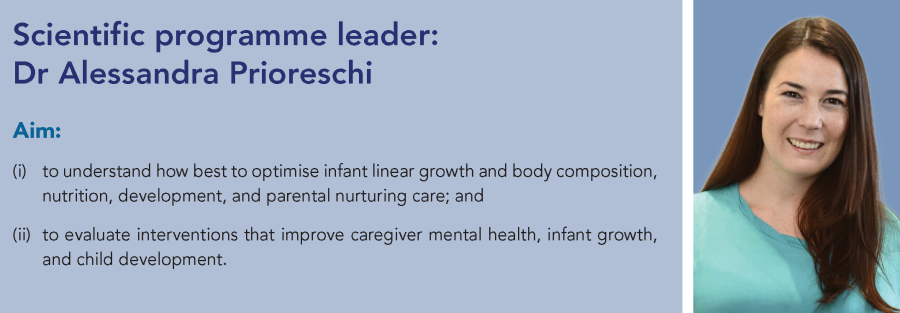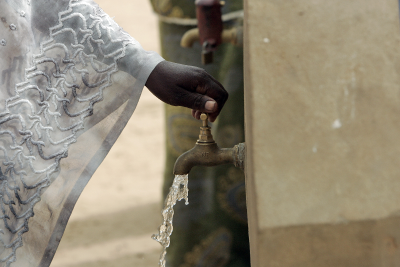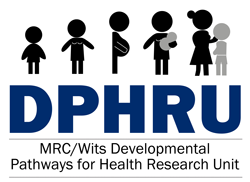

Programme highlights:
- We have advanced the area of measurement of infant movement through the design, development and testing of an infant wearable wrist band which has now been made commercially available. For the first time globally, analytical methodology has been developed to describe and interpret 24-hour movement during infancy using the wrist band, to investigate relationships between mother and infant physical activity using synchronous 24-hour monitoring, and to examine associations with motor development and growth (stature and adiposity).
- We have also begun testing the feasibility of “babycam” technology developed by Pearson as a complementary measure to the baby wrist band, as an objective measure of the caregiver-infant interaction in a home setting.
- We have contributed to South African evidence on the importance of WASH in infant health, growth and development and we have contributed to the understanding of the barriers South African urban caregivers face in implementation. We are innovating in the design of mobile technology platforms to improve access to information for caregivers.
- We developed new research in the area of childhood cancer and nutrition, a substantially under researched area in South Africa.
Ongoing research activities:
IINDIAGO
Principal Investigators Levitt and Norris
This is a postnatal RCT linked to baby wellness clinics to offset diabetes risk in women following GDM. The trial tests if engaging with mothers at key healthcare visits (ante-natal and post-natal when infant is vaccinated) presents opportunities for healthcare workers to employ a brief behaviour change intervention to promote healthier lifestyles and reduce diabetes conversion risk.
Baby headcams to observe parenting interactions during play
Principal Investigator Prioreschi and Co-Investigator Pearson
This research aims to use first person observation to measure parent behaviours and interactions during play with infants. The hypothesis is that interactive play will be associated with better quality interactions and thus promote nurturing care and improve child development. A pilot study for this work has been conducted in order to test the feasibility and acceptability of using these cameras in Soweto, and Dr Prioreschi has attended several training and workshop events with the Co-Investigator in Bristol. The analysis of this pilot data is underway, following which applications for funding for a longitudinal study will be sought.
Soweto Baby WASH study
Principal Investigator Said-Mohamed
 This study is investigating the interaction between nutrition, infection, the home environment and care practices and their impact on growth and development in infants between birth and one year of age. This research project aims to characterise the interactions between nutrition, infection, home environment and care practices, and their impact on growth and development from birth to 1 year of age. This will be achieved by addressing the following objectives: (i) to document breastfeeding and complementary feeding practices, infant illness and morbidity, household environment, care practices, growth and development between birth and one year of age; (ii) to assess the associations between the aforementioned factors and infant growth faltering between birth and one year of age; and (iii) to assess the associations between the aforementioned factors and their impact on infant development between birth and one year of age.
This study is investigating the interaction between nutrition, infection, the home environment and care practices and their impact on growth and development in infants between birth and one year of age. This research project aims to characterise the interactions between nutrition, infection, home environment and care practices, and their impact on growth and development from birth to 1 year of age. This will be achieved by addressing the following objectives: (i) to document breastfeeding and complementary feeding practices, infant illness and morbidity, household environment, care practices, growth and development between birth and one year of age; (ii) to assess the associations between the aforementioned factors and infant growth faltering between birth and one year of age; and (iii) to assess the associations between the aforementioned factors and their impact on infant development between birth and one year of age.
Africa Academy of Science and Gates Project
Principal Investigator Said-Mohamed
This project is developing a software platform to improve safety and utilisation of sanitation and water source facilities among women in South African informal settlements. We will develop a mobile phone platform which would enable women to empower each other with information to improve their own safety when using latrines and improve accountability for latrine and water source maintenance. The study has the following objectives: (i) to develop an ICT platform via the user-centred design approach to promote the sharing of information among women to improve perceived safety at WASH facilities; and (ii) to leverage crowdsourced data of latrine cleanliness from the ICT platform to aid service providers to prioritise unsanitary latrines for maintenance.
Infant Nutrition and Later Childhood Body Composition in Soweto South Africa (IAEA-HeLTI)
Principal Investigator Said-Mohamed
This work is embedded in the HeLTI trial in South Africa, India, China and Canada. The objectives are: (i) to track maternal and infant body composition throughout the intervention during pregnancy (at 10-17 weeks and at 24-28 weeks); (ii) post-pregnancy (at 6 and 12 months) using: skinfold measurements, deuterium dilution technique, DEXA (12 months) and bio-impedance; and (iii) to identify biological (nutritional status, body composition and energy expenditure) and environmental factors from pregnancy associated with changes in infant growth and body composition between birth and one year of age.
Cancer Treatment, Body Composition, and Clinical Outcomes in Paediatric Patients in South Africa
Principal Investigator Momberg and Co-Investigator Said-Mohamed
This project consists of a longitudinal observational cohort study aimed at generating a deeper understanding of how cancer and treatment influences childhood body composition through the continuum of childhood cancer. The study will utilise anthropometry, DXA, and deuterium dilution to evaluate various forms of nutritional assessment and detail changes in body composition in paediatric patients affected by cancer. The study will examine the associations between body composition, clinical outcomes, and treatment, in paediatric patients affected by cancer as well as assess the associations and interactions between the standard of care treatments, nutritional interventions, patients’ nutritional status, body composition and clinical outcomes. Patients between 0-18 years of age, presenting at the Paediatric Oncology Unit at Chris Hani Baragwanath Academic Hospital in Soweto will be screened and recruited over an 18 month period. Participants recruited into the study will be assessed at diagnosis and followed up at 3, 6, and 12 months post diagnosis, and at 6 months post cessation of treatment.

